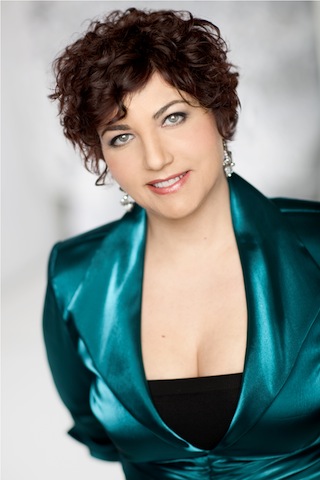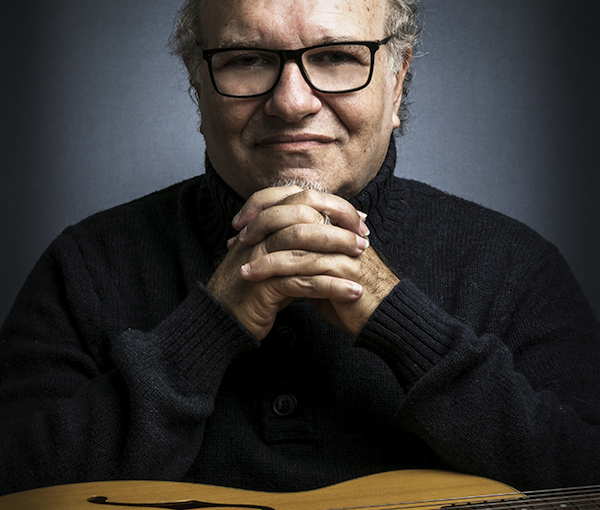Brazil’s Mauro Perelmann takes part in the upcoming Festival Judío. (photo from mauroperelmann.com.br)
For eight days, Aug. 2-9, the Peretz Centre for Secular Jewish Culture will be transformed into a hub of Latin American culture as it hosts Festival Judío, a multifaceted celebration showcasing Jewish artistic work from Argentina to Mexico. The festival, revived after its original 2004-2006 run, is expected to be the largest of its kind in terms of scope anywhere in the world.
“There is so much material to choose from that there could easily be separate festivals for Latin American Jewish visual art, books, films and music,” said organizer David Skulski, who also spearheaded the previous festivals.
Jewish Connections
Among the highlights of this year’s event is a show featuring Mauro Perelmann, who fuses various Brazilian styles with Israeli and klezmer music.
“My aim is to stir emotions through my music. I want to be evocative and create an atmosphere. It is more important for me to get a reaction from people than to play what is written,” he told the Jewish Independent from his home in Rio de Janeiro.
The samba was invented in the same Rio neighbourhood that later became a Jewish enclave, and there have always been links between Jews and Brazilian music in the city, he said. “With some modification of the scales,” he added, “I am able to turn familiar Brazilian tunes into sounds that resemble klezmer.”
A known composer and choir conductor in Brazil, Perelmann is no stranger to Vancouver audiences, having performed here in 2015 and 2016. His Festival Judío appearance on Aug. 8, as part of a nine-piece musical ensemble, will be preceded by a samba dance lesson.
Buenos Aires-based bandoneonist Amijai Shalev will present the lecture Tango: The Jewish Connection. “Jewish musicians and songwriters were very involved in the creative process of tango,” he explained. “The style of the violín tanguero is that of a Jewish violin arriving in Rio de la Plata (Argentina and Uruguay).” His Aug. 5 discussion of the parallels between tango and klezmer will examine the habanera rhythm (heard in George Bizet’s opera Carmen) that is present in both tango and klezmer. He will also trace the Eastern European origins of the bandoneon, a concertina that is a fixture in tango music.

On Aug. 3, Argentine-Canadian mezzo-soprano Andrea Fabiana Katz’s performance will cover several works by Jewish composers. “People associate tango with earthiness, passion and emotion…. The texts are very, very rich and full of metaphor and deep emotions, mostly about love, especially old familiar love. The poetry is always wonderful,” said Katz, who lives in Metro Vancouver.
The evening will be a milonga, which can be taken to mean both a musical genre and a tango party. Prior to the concert will be a tango dance lesson, and Jewish foods from Latin America will be available.
Film screenings
Among the festival’s offerings are five films. An Unknown Country employs firsthand accounts in following the lives of Jews who escaped from Nazi Germany to Ecuador, and shows their contributions to the economic, artistic, scientific and social life of their adopted country. Director Eva Zelig will be on hand after the film, on Aug. 7, for a question-and-answer period.
Other films at the festival include Los Gauchos Judíos, based on an Alberto Gerchunoff novel portraying the thousands of Russian Jews who came as farmers to Argentina in the late 1880s and 1890s; and The Fire Within, a documentary chronicling the integration of Moroccan Jewish settlers with the indigenous women of rural Peru in the late 19th century.
Two dramas, the bittersweet comedy Nora’s Will (Mexico) and the slow-burning thriller The German Doctor (Argentina), complete the cinematic line-up.
Lectures and artists
The Song of Lilith, an Aug. 6 talk by visual artist, filmmaker and Jungian therapist Liliana Kleiner, explores the ancient myth of Lilith found in the Talmud and in kabbalah, its incarnations through the ages, and how this legend relates to the present day.
Additional events include a writers workshop led by young-adult author Silvana Goldemberg and a presentation about the reality of the situation in Venezuela, led by Jack Goihman, who was an agriculture engineer when he left his home country of Venezuela because of its political instability. Arriving in Vancouver in 2014, Goihman completed a master’s in business administration and now works as a project manager.
A visual art show and sale will exhibit works by local and internationally shown and collected artists, including Miriam Aroeste and Kleiner, as well as a mural by the late Arnold Belkin.
A book sale, primarily of selections from the University of New Mexico Press, includes Oy, Caramba! An Anthology of Jewish Stories from Latin America, edited by Ilan Stavans, and Yiddish South of the Border: An Anthology of Latin American Yiddish Writing, compiled by Alan Astro, with a introduction by Stavens.
“Festival Judío is a double celebration of Jewish culture and Latin American culture,” observed Shalev. “Both are expressions of the richness and diversity of humanity.”
For more information on the festival, visit facebook.com/festivaljudio.
Sam Margolis has written for the Globe and Mail, the National Post, UPI and MSNBC.

